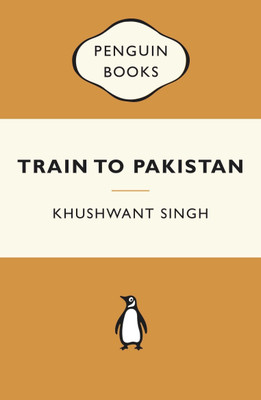Train to Pakistan(English, Paperback, Singh Khushwant)
Quick Overview
Product Price Comparison
This is a novel that depicts the effects of the horrific events surrounding the Partition on the lives of ordinary people. Summary Of The Book It is 1947, and the country has gained independence. There are celebrations going on around the country. Side by side, there is an outbreak of communal violence in many places as the country is being divided into India and Pakistan. But none of these find any echoes in the small village of Mano Majra in a remote corner of Punjab. The village is isolated from outside events, and its Sikh and Muslim communities live in complete harmony, and have done so for years. The village politics is dominated by Hukum Chand, the district magistrate, who manipulates all activities in the village for his own benefit. The police sub-inspector of the village is also under his thumb. Juggut Singh is the village baddie, who is always in and out of prison for various petty offenses. He is in with all the local gangs. But, underneath it all, there is a streak of stubborn loyalty to his own people in Juggut. A decision is made to transport all the Muslim inhabitants of the village to Pakistan. The villagers themselves are baffled by this decision. They have been living as brothers and sisters for years. Why should a section of the population be forced to leave now, just because they belong to a particular religion? Outside events slowly penetrate and influence even this little village. A Hindu money lender is killed. Meanwhile, a trainload of bodies, of Hindus and Sikhs killed in riots elsewhere arrives at the village. Religious fundamentalists, and people who have suffered first-hand the horrors of the events surrounding the Partition begin to arrive at the village. Their heart is filled with hate and thoughts of revenge. Gradually, the madness spreads to the villagers too. The bodies in the train enrage them and the newcomers add fuel to the fire. The Inspector who has been sent on a special assignment to oversee the transport of the Muslims on the train and to maintain peace is faced with a dilemma. The moneylender who has been murdered is a Hindu. He was not killed for religious reasons, but the heightened tensions in the village means no one is willing to listen to the reason. To appease the villagers, he decides to arrest Juggut and a political activist named Iqbal, both of whom he knows have nothing to do with the crime. He learns of a plot to attack the train carrying the Muslims to Pakistan. In desperation, the Inspector releases both Juggut and Iqbal, hoping they would somehow help him to stop the violent mob. This is a vivid portrayal of human behavior in times of tension, the breakdown of all social and moral norms, when mob hysteria is stirred up. Through the community of Mano Majra, the author offers a peek into the psyche of the people, and how people who have been living calmly together for centuries can be turned against each other in the blink of an eye. About Khushwant Singh Khushwant Singh is an Indian journalist and author, one of the foremost of the Indo-Anglian writers. Some other books by Khushwant Singh are Delhi: A Novel, The Company of Women, A History of the Sikhs 1469-1839 (Volume -1), Truth, Love & A Little Malice, and The Sunset Club. His writings are known for their scathing satire and acerbic wit. Khushwant Singh was born in Khushab, Punjab in 1915. His father was a builder and his uncle has served as the governor of Punjab and Tamilnadu. Khushwant Singh studied at St. StephenŌĆÖs College in Delhi and KingŌĆÖs College, London. He then Studied for the Bar at the Inner Temple. He has had extensive experience as an editor and as a journalist. He has been the editor of many of IndiaŌĆÖs leading publications like the Illustrated Weekly, National Herald, and Hindustan Times. He served as a Rajya Sabha M.P. in the 1980s. He returned his Padma Bhushan award in protest against the armyŌĆÖs invasion of the Golden Temple. He currently writes a column, With Malice Towards One And All, which is featured in many publications across the country.


